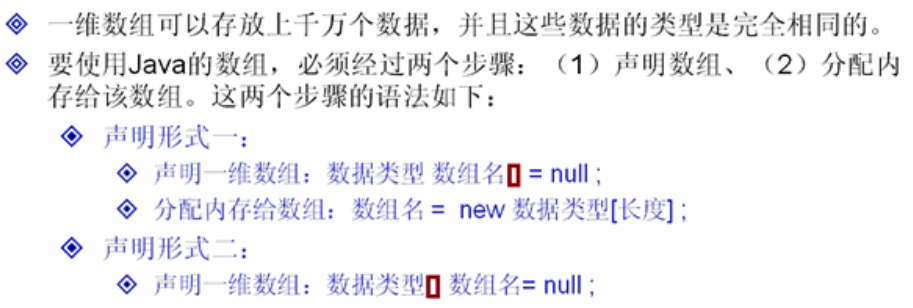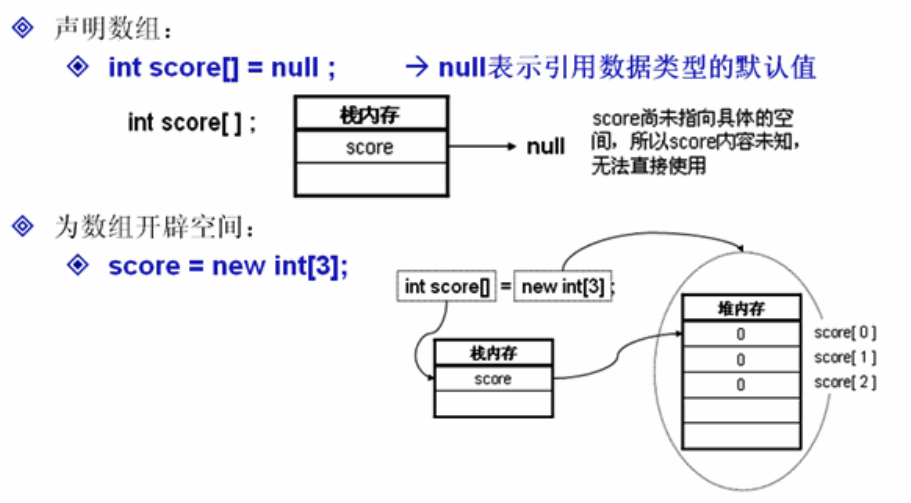一维数组
动态初始化

图解说明:

例1:声明数组,分配空间
/* 声明数组,并为数组开辟空间 int类型数组中的元素默认值是0 */ public class ArrayDemo01 { public static void main(String[] args) { int score[] = null; //声明数组 score = new int[3]; //为数组开辟空间,大小为3 System.out.println("score[0]=" + score[0]); System.out.println("score[1]=" + score[1]); System.out.println("score[2]=" + score[2]); for(int x=0;x<3;x++){ System.out.println("score[" + x +"]=" + score[x]); } } }
运行结果:
score[0]=0 score[1]=0 score[2]=0 score[0]=0 score[1]=0 score[2]=0
例2:声明数组,分配空间,为数组中内容赋值
/* 声明数组,并为数组开辟空间 int类型数组中的元素默认值是0,可以通过下标的方式为数组中的内容赋值 */ public class ArrayDemo02 { public static void main(String[] args) { int score[] = null; //声明数组 score = new int[3]; //为数组开辟空间,大小为3 for(int x=0;x<3;x++){ //为每一个元素赋值 score[x]=x*2+1; //每一个值都是奇数 } for(int x=0;x<3;x++){ System.out.println("score[" + x + "]=" + score[x]); } } }
运行结果:
score[0]=1 score[1]=3 score[2]=5
静态初始化

/* 使用静态初始化声明数组 */ public class ArrayDemo04 { public static void main(String[] args) { int score[]={91,92,93,94,95,96}; //使用静态初始化声明数组 for(int x=0;x<score.length;x++){ //循环输出 System.out.println("score[" +x+"]=" + score[x]); } } }
运行结果:
score[0]=91 score[1]=92 score[2]=93 score[3]=94 score[4]=95 score[5]=96



 浙公网安备 33010602011771号
浙公网安备 33010602011771号